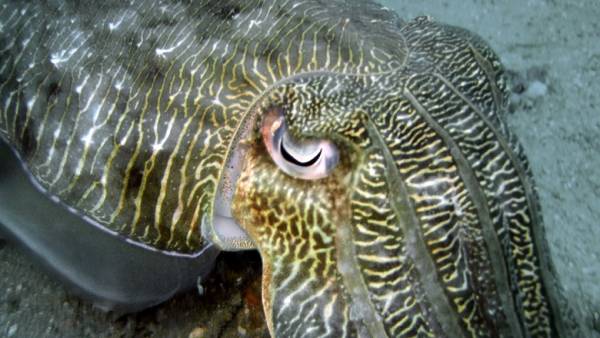Five of the “aliens” living in the ocean
The underwater world is amazing and diverse. Different organism infects the human eye is incredible shapes and color. Sometimes these tiny creatures resemble the inhabitants of another planet.

Blue dragon
This is an amazing view of gastropods that live in tropical seas. At length they reach 40 mm.
Quickly move the blue dragon help fingerlike growths, colored in intense blue.
 During the download an error has occurred.
During the download an error has occurred.
But there is another feature of this mollusk — periodically, he swallows a bubble of air. Gas bubble stored in the stomach, helping the dragon to not only swim on the surface, but also to move in the most incredible way.
 During the download an error has occurred.
During the download an error has occurred.
Malibu
Nudibranches head-a hood are found in the Mediterranean and Red seas and in shallow waters near Papua New Guinea. At length they reach 10 inches.
 During the download an error has occurred.
During the download an error has occurred.
These predators feed on smaller marine fauna. Mouth have melibe fringed with sensory tentacles. While hunting it opens, is thrown forward and catches food.
 During the download an error has occurred.
During the download an error has occurred.
Flabellina
Flabellina pedata — gastropods up to 5 inches. Have bright color that combines pink and purple shades. Common in the Mediterranean, Atlantic, English channel and the North sea.
 During the download an error has occurred.
During the download an error has occurred.
Molluscum lives on algae and polyps in the zone of tides.
 During the download an error has occurred.
During the download an error has occurred.
Ctenophora
These marine animals have a distinctive feature — the ridges are composed of cilia. They help when swimming.
 During the download an error has occurred.
During the download an error has occurred.
Jellyfish can be very small (a few millimeters) and very large (up to five feet). Their bodies resemble jelly-like mass.
Almost all ctenophores are predators that consume larvae, jellyfish, crustaceans and even other ctenophores.